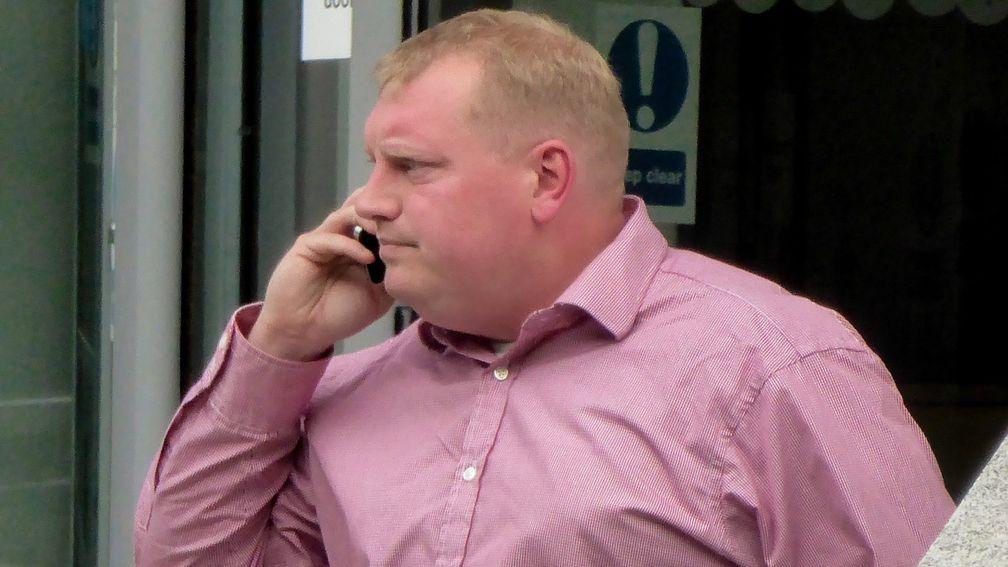Racing conman jailed for over five years after fleecing punters out of £200,000

A horseracing conman used a string of false identities to cheat racing punters out of more than £200,000 through scams including gambling syndicates and shares in racehorses.
Christopher Beek, who as a racehorse owner had winners in his silks and under Kachina Racing, made some payments to keep his victims hooked and posed as a private detective supposedly to help them get their money back – for a fee.
However, his final deception, claiming he could raise the money to repay the losers, was exposed as just another lie after Warwick Crown Court heard he was penniless.
Beek, 36, of Burlington Road, Blackpool, was jailed for five years and ten months after he had pleaded guilty to charges of defrauding four people over a three-year period.
Judge Andrew Lockhart QC observed he had conned his victims out of around £204,000 – and, after they had received some returns to keep them hooked, there was £164,000 outstanding.
Prosecutor Graham Russell said Beek's first victim was an offshore oil rig worker, who was offered membership to a gambling system in December 2011, with a supposedly guaranteed return.
He invested £3,400, followed by a further £1,500, and then another £800. He received a return of £1,200 at the end of the six months, but was brushed off with a succession of excuses when he began chasing the rest of his money.
To trick him into parting with even more cash, Beek invented someone called Charles Symonds, who was supposedly a sports betting expert – and the oil rig worker paid out another £2,000, which went into Beek's Kachina Racing account.
That victim eventually began to suspect that Symonds was Beek who, in his own name through the Kachina Racing address, continued making excuses for the lack of payments.
Not content with fleecing him through the betting scam, using other false personas Beek tricked him into investing £3,000 in fine wines from France and another £3,000 to deal in non-existent computer systems.
The biggest loser was a farmer who was taken in by what Judge Lockhart described as "a bewildering cast of fictitious persons" and ended up losing a staggering £129,000.
Drawn in through a Kachina Racing flyer, the farmer was persuaded to hand over an initial £15,000 for a betting investment club with supposedly guaranteed profits.
Beek, using other identities, also conned the farmer into investing large sums of money in systems using automated betting programs, including one called Sidebot, sending out regular fake performance emails.
He then killed off the person supposedly behind that scheme, and created a man called Michael Taylor, who offered to help the farmer recover his money – for a fee.
Beek, who ran 20-plus horses in 2012 in his own name, all but one with Alastair Lidderdale, then became 'successful gambler' Phil Clark, with whom the farmer was tricked into investing more money.
It was only after paying into other scam betting schemes that the farmer spoke to tipster 'Alan Nugent', with whom he had invested £10,000, and recognised the voice as that of Beek, who made threats of IRA links to try to stop him going to the police.
Another victim, a company director, had fallen prey to an email supposedly from Scott King of Sporting Pro offering tips on horses at the Cheltenham Festival.
The director paid over £1,900 for bets which should have brought in £6,250 in winnings, but he did not receive any of it.
Later Beek resurfaced using his own name, and that of Kachina Racing, to supposedly help him get his money, subject to him paying a subscription fee.
He was then conned into investing in a football betting concern supposedly run by 'Eddie Edge'.
Then using the guise of Spectral Racing, Beek sold him a 50 per cent share in a horse called Geographical, promising him 40 per cent of any winnings and of the eventual sale price. He was later told it had been sold and that he was due £6,000, which he never received.
The whole thing had been a pretence, because although Geographical and another horse in which he bought a share, Royal Flag, did exist, Brightwells horse sales, who believed they were dealing with Spectral Racing, retrieved both horses after receiving only £1,800 of the agreed £64,000 price.
In 2015 a Warwickshire businessman who had lent a woman more than £500,000 was 'introduced' by Beek to a supposed private detective called Shane McGivern, who would help recover the debt. In that guise, Beek, it was said, tricked the businessman into paying fees totalling around £50,000.
Simon Worlock, defending, said: "He has written a letter in the fond hope that Your Honour may say a suspended sentence might be merited, although I have a feeling Your Honour will say it's not merited.

"This happened over three years ago, and it was all over by 2015. He had not come to terms with this until relatively recently. Part of his prevarication is his inability to come to terms with the seriousness of what he's done."
Worlock said that after leaving school Beek had worked as a groom for Mick Channon, an injury dashing his hope of becoming a jockey, and he instead set up a yard.
"He lost the yard in 2013," said Worlock. "He had 20 horses, and he sold them for a pittance and tried to live on his wits providing racing tips, but he got completely overwhelmed with what he was doing and then he starts to lie.
"It's telling lie upon lie to cover up lie upon lie. He's not a man who set out from the start to commit fraud, but someone who drifted into it and then could not find a way out."
Jailing Beek, Judge Lockhart told him: "You find yourself here in respect of serious criminality. The schemes were broadly fictitious. You lost money, and you simply asked for more. It was a three-year sophisticated fraud. The web of lies has been hard to unravel.
"There was a bewildering cast of fictitious persons, betting systems, internet accounts, and then, using your own name and six other names, you wove a web of deception."
If you are concerned about your gambling and are worried you may have a problem, click here to find advice on how you can receive help
Published on inNews
Last updated
- How to add Racing Post as a preferred news source in Google
- Moray Smith Live: put your questions to the pro punter for a special Christmas Q&A
- It's your LAST CHANCE to get 30% off Racing Post+ for a whole year - don't miss out on all our fantastic content!
- 'Absolute nonsense' to claim Haiti Couleurs was out of his depth in Betfair Chase
- Catterick: 'I loved him straight away' - hurdles debutant Indian River makes winning start for Adrian Keatley
- How to add Racing Post as a preferred news source in Google
- Moray Smith Live: put your questions to the pro punter for a special Christmas Q&A
- It's your LAST CHANCE to get 30% off Racing Post+ for a whole year - don't miss out on all our fantastic content!
- 'Absolute nonsense' to claim Haiti Couleurs was out of his depth in Betfair Chase
- Catterick: 'I loved him straight away' - hurdles debutant Indian River makes winning start for Adrian Keatley